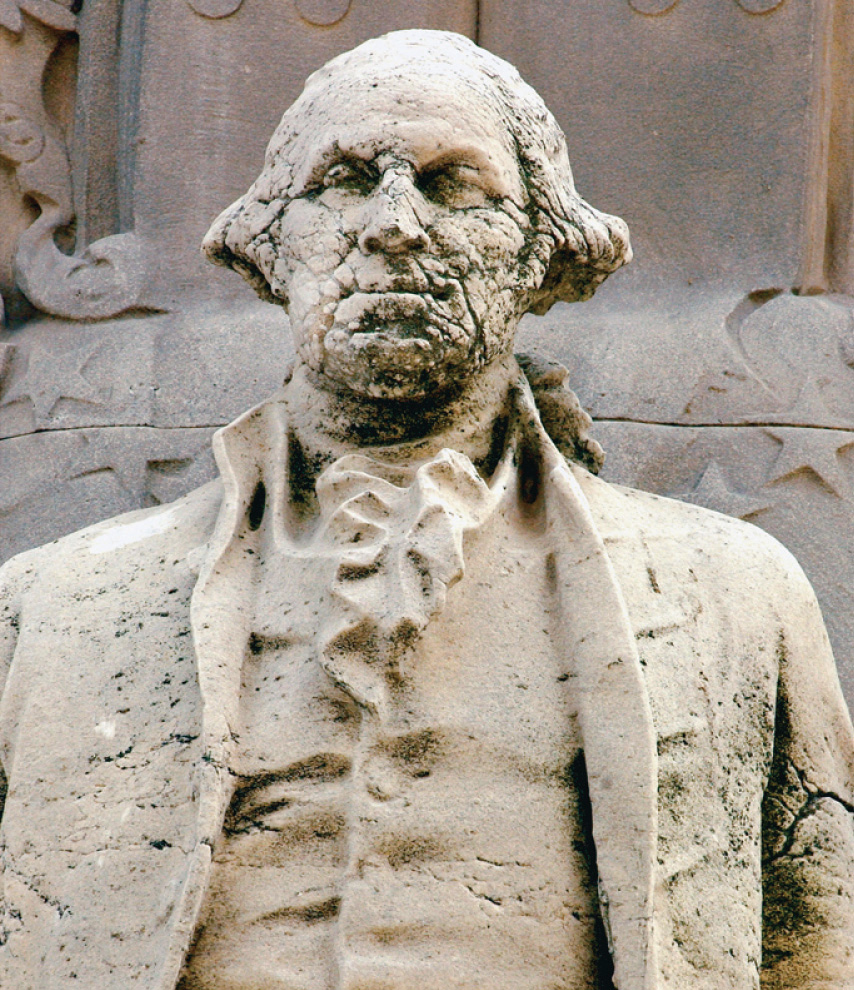Question #d89db
1 Answer
Your instructor probably expects you to say that calcium carbonate is a component of marble but not of granite.
That's fine if you know that marble consists of calcium carbonate, CaCO₃.
Marble reacts with hydrochloric acid to produce bubbles of carbon dioxide gas.
CaCO₃(s) + 2HCl(aq) → CaCl₂(aq) + CO₂(g)
If you know that marble consists of CaCO₃, you can say that calcium carbonate is not a component of granite.
If you don't know that, all you can say is that granite does not contain a metal carbonate.
Other minerals are metal carbonates. They also form bubbles when treated with hydrochloric acid.
Among these are rhodochrosite (MnCO₃), siderite (FeCO₃), smithsonite (ZnCO₃), strontianite (SrCO₃), and witherite (BaCO₃).

Acid rain has eaten away at this marble statue of George Washington. The reaction is slower than that with hydrochloric acid, but the result is the same.

